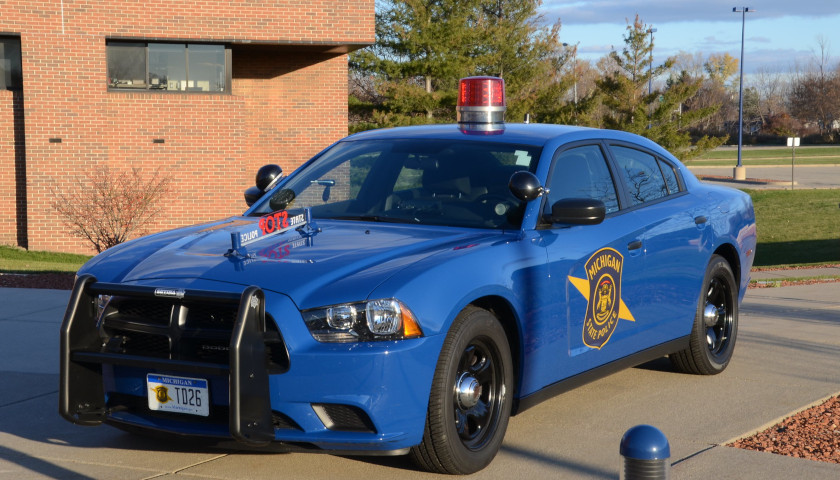by Scott McClallen
Michigan police used civil asset forfeiture to seize $15 million worth of property and cash from more than 6,000 people in 2018, according to a report from Michigan State Police.
State Police detailed $13.4 million in cash seized and spent supplementing their budgets, according to the report.
Michigan adopted a civil asset forfeiture law in 1978 that allowed law enforcement to deprive criminals of profits gained through illegal activity. Critics say the practice often tramples on the property rights of low-level drug users who have little income.
According to the State Police report, property was seized from more than 6,000 persons in Michigan in 2018. Of these 6,000 individuals, only 2,810 were convicted of the crime for which the property was seized.
The agency retained $7.6 million worth of items, sold $3 million worth, and $256,000 was “not answered.” Police seized property from 25 people without explaining the reason for the seizure.
Jarrett Skorup, director of marketing and communications for the Mackinac Center for Public Policy, said the main concern with asset forfeiture is the more than 500 people who had “assets taken, seized, and not even charged with any criminal activity.”
Of the 6,000, 514 never faced criminal charges.
Skorup said research by The Institute for Justice, a libertarian-leaning public interest law firm, found many instances in which forfeiture targeted small-time drug users instead of drug traffickers.
“These are largely assets taken from people who are low-income,” Skorup told The Center Square.
Skorup said forfeiture laws are aimed at drug kingpins but hit low-level offenders without money to pay for an attorney.
“Most cases are cash and cars of small amounts – less than $400 and vehicles worth $2,000-3,000,” Skorup said.
These seizures aren’t just cash, drugs, and guns. Police seized 13 houses, 3,545 vehicles, and 39,402 other valuable items.
Skorup said the houses seized typically belonged to more severe criminals who were convicted, like large-scale drug dealers.
Sheriff Blaine Koops, CEO of Michigan Sheriff’s Association, agreed, saying that seized houses or barns are more than likely drug-related.
“Anything that can be attached to illegal activity – if illicit funds a boat, car, or snowmobile – it can be seized it as well,” Koops said.
A 45-year veteran, Koops said his main concern about changing civil forfeiture requirements to require a conviction every time was twofold: That those assets than won’t be there by the time a conviction is reached and that it will reduce funds to further criminal investigations.
He argued that lost funds should be restored through other means if requirements are changed.
The Michigan Legislature in April enacted reforms starting Aug. 1 that will typically require a criminal conviction before officials can retain seized assets.
The new law requiring a conviction for forfeiture doesn’t apply to property worth more than $50,000 if it may be associated with illegal drug trafficking. This property will still be subject to forfeiture even if its owner is not convicted of a crime.
Many such individuals are never charged, and they surrender ownership rather than contest the seizure in court because of attorney costs, Skorup said.
Skorup said most people whose property was seized without convictions weren’t willing to pay court costs over a few hundred dollars or an old car.
“So they haven’t been charged with anything, but it’s their job to go and hire an attorney and make a claim,” Skorup said. “And it’s just not worth their money to go and do that.”
– – –
Scott McClallen is a staff writer covering Michigan and Minnesota for The Center Square. A graduate of Hillsdale College, his work has appeared on Forbes.com and FEE.org. Previously, he worked as a financial analyst at Pepsi.
Photo “Michigan State Police Car” by Joe Ross. CC BY-SA 2.0.




